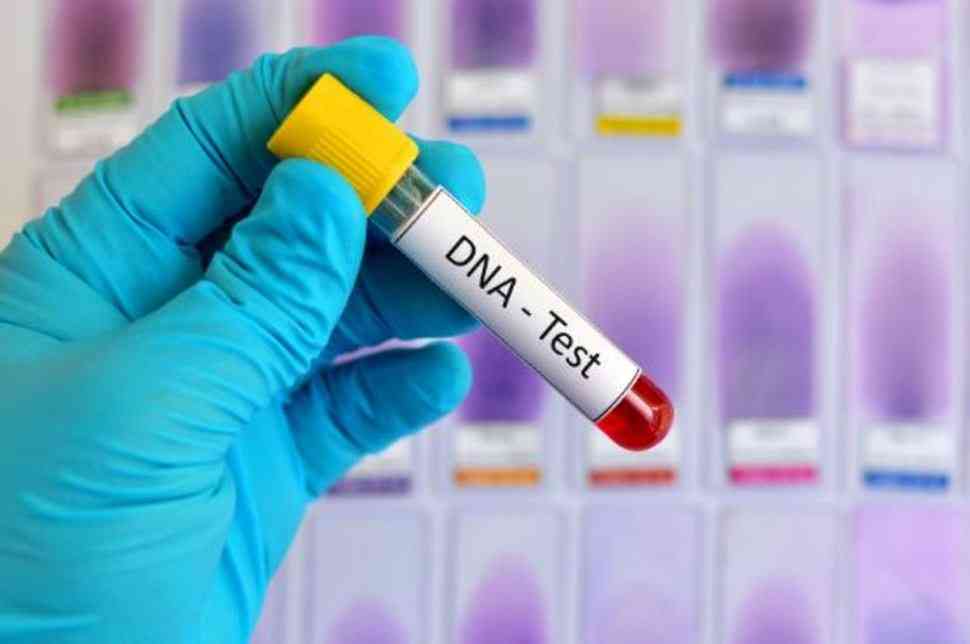
DNA testing and its use in private family matters of biological relationships must be regulated by law.
It should be restricted to resolve family issues privately in line with other regulations on data privacy and protection and safeguarding the best interests of children. The law should ban and criminalise televised or any other public announcements or shows of real-life DNA test results.
DNA testing and public announcement of results infringe children’s rights to protection from public harm, exploits and commercialises families’ vulnerability, misfortunes, misery and poverty to profiteering businesses as online content. It leaves affected children and families publicly humiliated and contributes to mental health challenges.
It also reproduces stereotypical notions that stigmatise women and men, perpetuating technologically facilitated gender-based violence (TFGBV). Above all, it maligns the integrity of scientific solutions such as DNA testing to real-life family and societal challenges.
DNA testing in Zimbabwe: When science meets harmful cultural practices
DNA testing is a scientific method that is used to establish the percentage of a child’s match to their biological bloodline. It is also used in medical and health diagnosis and for legal and forensics purposes, including in the prosecution of cases of sexual and gender-based violence.
In present-day Zimbabwe, DNA testing has become a popular phenomenon used particularly for paternal assessment reasons, accounting for 82,07% of DNA testing in a study conducted by Nature Health. The same study states that paternity tests are mostly requested in private laboratories and often in the absence of the mother.
Contextualising the high uptake of DNA paternal testing in Zimbabwe needs to be understood within the country’s socio-cultural contexts. Locating paternal contestation within the socio-cultural context shows that it is intricately linked with historical, harmful cultural practices and stereotypes that disproportionately affect women.
- Mavhunga puts DeMbare into Chibuku quarterfinals
- Bulls to charge into Zimbabwe gold stocks
- Ndiraya concerned as goals dry up
- Letters: How solar power is transforming African farms
Keep Reading
This situates the problem in societal practices that not only harm women but also children, men, and families. It draws attention to the urgent need for policy reform to minimise the impact of TFGBV that televised DNA shows have on affected families and society.
Biological parental contestation is not a new phenomenon in Zimbabwean society. Various harmful patriarchal social norms and practices have historically been established, widely accepted and continue to be practised by many families across classes in present-day Zimbabwe.
This is despite decades of work by women’s movements to combat harmful cultural practices that undermine gender equality and perpetuate gender-based violence. One of the patriarchal practices directly related to paternal contestation is kupindirwa mumba. This is a practice that promoted step-fathering or step-mothering, knowingly and unknowingly.
Kupindirwa mumba was used when couples struggled/delayed having children and was done for kuchengetedza imba. Kuchengetedza imba is a Shona phrase that loosely translates to marriage (union) preservation. To preserve marriages, kupindirwa mumba was promoted by having a few elderly and respected family members to secretly arrange that a brother or nephew of the husband gets sexual with their sister-in-law to help the couple to have a child(ren). If the challenge persisted, the husband was encouraged to marry another wife ‘to give him an heir’.
Although having children remains a decision for couples, Zimbabwean patriarchal society holds various stereotypical misconceptions about not having children. Couples are often stigmatised, which can lead to the breakdown of unions.
Kupindirwa mumba, therefore, normalised step-fathering as women were encouraged to try for children with men they were not necessarily in unions with. It also encouraged polygamy as men were encouraged to marry in instances where their wives could not have children after kupindirwa mumba. Other practices that also promoted step-parenting were boy-child preferences, where men were encouraged to have children outside their matrimonial unions in search of sons.
Although conception challenges are normal biological or scientific issues that affect both men and women, in the Zimbabwean context, women are disproportionately affected. Kupindirwa mumba, for example, worked on the assumption that women must not have fertility problems. If they had, that increased their vulnerability to divorce, polygamous unions or to contend with their husbands having children outside marriage and ill-treatment by family and society. The practice also forced women to have multiple sexual relations in the name of their brothers/uncles and uncles’ relatives. This increases the risk of transmissible diseases.
Although Zimbabwean society has evolved, it still upholds patriarchal notions and harmful practices that impose the burden and responsibility to mitigate against divorce, polygamy and forced multiple sexual relationships on women. A recent visit to Zimbabwe by the United Nations Working Group on discrimination against women and girls noted the negative impacts of polygamy on women and the overall societal health and socio-economic wellbeing.
Women’s movements in Zimbabwe have carried out decades of work challenging harmful practices and promoting equal rights and dignified treatment of children, women and men in all aspects of life. They continue to fight gender-based violence and call for the respect of the Constitution of Zimbabwe.
Televised DNA testing is doing more harm than good
In Zimbabwe, particularly through social media broadcasts, DNA testing has not only become an instrument of entertainment, but commercialisation of families’ real-life private problems and exposure of children and women to TFGBV.
In such instances, DNA testing has become a burgeoning business that thrives on the exploitation and commercialisation of families’ vulnerability, misfortunes, misery and poverty as social media content.
Televised tests are offered to couples at discounted rates compared to the private issuance of test results. A snapshot survey with four women and three men who took DNA tests shows that they were offered two options for the cost of DNA testing by a private laboratory. The cost of televised results announcement was US$150 as of August 2025. Private tests were charged at US$220. Average salaries for civil service personnel, which accounts for the majority of the formally employed population in Zimbabwe, range between US$100 to US$500.
The 2021 World Bank report on Zimbabwe characterised more than half of Zimbabwe’s population as living in extreme poverty, below the poverty datum line of US$29,80 per person per month. In this plight, televised DNA testing and results announcement are used to entice desperate families; however, at huge emotional and psychological costs in the form of public humiliation, broken relationships, and societal violence perpetrated through technology. Some of the women and men who participate in the televised tests end up switching off their phones and getting off social media as a result of personal pressure and attacks from family members, friends and society in general.
The impact on children is also huge and long-lasting, as they forever encounter public humiliation as part of their involuntary digital media footprint. They are forced to carry their parents’ burdens of trust and mistrust, life-changing questions they have no right or say in.
In a patriarchal society like Zimbabwe, public DNA testing has become a tool for reinforcing toxic masculinity while undermining men’s mental health. Men who take public DNA tests are, on the surface, glorified particularly through social media, yet their mental health is not prioritised. Some of them coerce their wives to do public testing to shame them, but battling mental health challenges in private.
Their vulnerability, in a complex context of patriarchy and harmful cultural practices, is offered as DNA entertainment shows. Yet for them, their performance does not end with the producer clicking the stop button and begins to enjoy profits from their pain. It marks the reality of life-changing situations that could respectfully be resolved in a supportive environment. The issues that may be at stake in their lives are instead compounded by real and imagined public comments facilitated by digital platforms, exacerbating mental health.
A study published by the Research and Scientific Innovation Society shows that mental health-related illnesses and risks, such as depression, drug and substance abuse and suicides, are leading causes of death among men. The reports add that although deeply affected by mental health, men rarely seek support.
Public DNA testing on television and social media should be banned. It infringes on children’s rights, the privacy of people’s data, and fuels mental health and other dangerous consequences. It also perpetuates TFGBV.
According to the Sexual Violence Research Initiative, TFGBV is an act that is committed using information communication technologies or other digital tools, which results in physical, sexual, psychological, social, political or economic harm, or other infringements of rights and freedoms. DNA testing and use through social media platforms is contributing to individually and collectively targeted gender-based violence and reproducing patriarchy. If not urgently regulated, this will counter the country’s goal to mitigate against gender-based violence and promote safe digital spaces, homes and communities.
Policy considerations
While DNA testing can be used for solving paternal disputes, the law must ensure that this is done in ways that uphold human dignity, safeguard children and give deep consideration to affected couples and their families’ mental health. Children’s rights that are provided for in the Constitution of Zimbabwe must be upheld. Section 81(2) of the Constitution states that ‘a child’s best interests are paramount in every matter concerning the child’.
Although parental consent may be sought for televised results, children are directly and perpetually affected by the publicity, as the content remains available online. DNA-related dispute resolution mechanisms also need to protect the rights to privacy (section 57) of the involved parties. Involved parties need to be encouraged to seek relevant and professional support for their mental health and the legal implications of their varying situations. Additionally, both women and men need to be protected from TFGBV.
There is a need to educate the Zimbabwean society on fertility, complications associated with such, while promoting human rights and the dignity of women and men to mitigate against discrimination. There is also a need to encourage the State to invest in research, innovation and promotion of safe, healthy and scientifically proven methods of supporting families that experience fertility challenges.
- Glanis Changachirere is the team leader of the Institute for Young Women Development, an organisation that promotes young women’s rights. She is also the regional coordinator of the African Women Leaders Forum, a network that fosters young women’s leadership across Africa. She can be contacted at glanisc@gmail.com. The author conducted interviews with purposively sampled women and men who have done DNA testing privately and publicly. Insights from the interviews added to the views expressed in this write-up.










